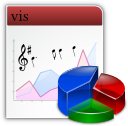Source code for vis.analyzers.indexers.noterest
#!/usr/bin/env python
# -*- coding: utf-8 -*-
#--------------------------------------------------------------------------------------------------
# Program Name: vis
# Program Description: Helps analyze music with computers.
#
# Filename: controllers/indexers/noterest.py
# Purpose: Index note and rest objects.
#
# Copyright (C) 2013 Christopher Antila
#
# This program is free software: you can redistribute it and/or modify
# it under the terms of the GNU Affero General Public License as
# published by the Free Software Foundation, either version 3 of the
# License, or (at your option) any later version.
#
# This program is distributed in the hope that it will be useful,
# but WITHOUT ANY WARRANTY; without even the implied warranty of
# MERCHANTABILITY or FITNESS FOR A PARTICULAR PURPOSE. See the
# GNU Affero General Public License for more details.
#
# You should have received a copy of the GNU Affero General Public License
# along with this program. If not, see <http://www.gnu.org/licenses/>.
#--------------------------------------------------------------------------------------------------
"""
.. codeauthor:: Christopher Antila <christopher@antila.ca>
Index note and rest objects.
"""
from music21 import stream, note
from vis.analyzers import indexer
[docs]def indexer_func(obj):
"""
Used internally by :class:`NoteRestIndexer`. Convert :class:`~music21.note.Note` and
:class:`~music21.note.Rest` objects into a ``unicode`` string.
:param obj: An iterable (nominally a :class:`~pandas.Series`) with an object to convert. Only
the first object in the iterable is processed.
:type obj: iterable of :class:`music21.note.Note` or :class:`music21.note.Rest`
:returns: If the first object in the list is a :class:`music21.note.Rest`, the string
``u'Rest'``; otherwise the :attr:`~music21.note.Note.nameWithOctave` attribute, which is
the pitch class and octave of the :class:`Note`.
:rtype: unicode
**Examples:**
>>> from music21 import note
>>> indexer_func([note.Note('C4')])
u'C4'
>>> indexer_func([note.Rest()])
u'Rest'
"""
return u'Rest' if isinstance(obj[0], note.Rest) else unicode(obj[0].nameWithOctave)
[docs]class NoteRestIndexer(indexer.Indexer):
"""
Index :class:`~music21.note.Note` and :class:`~music21.note.Rest` objects in a
:class:`~music21.stream.Part`.
:class:`Rest` objects become ``'Rest'``, and :class:`Note objects become the unicode-format
version of their :attr:`~music21.note.Note.nameWithOctave` attribute.
"""
required_score_type = 'stream.Part'
def __init__(self, score, settings=None):
"""
:param score: A list of all the Parts to index.
:type score: list of :class:`music21.stream.Part`
:param settings: This indexer uses no settings, so this is ignored.
:type settings: NoneType
:raises: :exc:`RuntimeError` if ``score`` is not a list of the right type.
"""
super(NoteRestIndexer, self).__init__(score, None)
self._types = [note.Note, note.Rest]
self._indexer_func = indexer_func
[docs] def run(self):
"""
Make a new index of the piece.
:returns: A :class:`DataFrame` of the new indices. The columns have a :class:`MultiIndex`;
refer to the example below for more details.
:rtype: :class:`pandas.DataFrame`
**Example:**
>>> the_score = music21.converter.parse('sibelius_5-i.mei')
>>> the_score.parts[5]
(the first clarinet Part)
>>> the_notes = NoteRestIndexer(the_score).run()
>>> the_notes['noterest.NoteRestIndexer']['5']
(the first clarinet Series)
"""
combinations = [[x] for x in xrange(len(self._score))] # calculate each voice separately
results = self._do_multiprocessing(combinations)
return self.make_return([unicode(x)[1:-1] for x in combinations], results)
